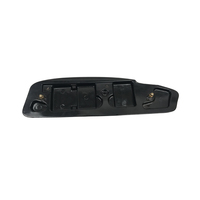Categories
Tags
-
#China Aluminum Die Casting Products
#China Lead Die Casting
#OEM Aluminum Enclosure
#China Die Casting Factory
#Die Casting Manufacturer
#Lead Die Casting
#Zinc Die Casting
#OEM Aluminum Die Castings 、OEM Aluminum Enclosure
#Zinc Die Casting Chinese Zinc Die Casting Manufacturer
#OEM Aluminum Die Castings
#Aluminum Die Casting China Aluminum Die Casting Products
#aluminum die casting China die casting factory
#China die casting factory aluminum die casting
#OEM aluminum enclosure Die casting manufacturer
#zinc die casting lead die casting
#lead die casting zinc die casting
#China lead die casting China zinc die casting manufacturer
#China lead die casting China zinc die casting manufacturer
#China zinc die casting manufacturer China lead die casting
#lead die casting zinc die casting
#China zinc die casting manufacturer China lead die casting
#China lead die casting China zinc die casting manufacturer
#aluminum die casting China die casting factory
#China die casting factory aluminum die casting
#Die casting manufacturer OEM aluminum enclosure
#lead die casting zinc die casting
#China lead die casting China lead die casting factory
#aluminum die casting China die casting factory
#zinc die casting lead die casting
#China lead die casting China lead die casting factory
#Die casting manufacturer OEM aluminum enclosure
#aluminum die casting China die casting factory
#Aluminum Die Casting
Archives
Performance Advantages Of Lead Die Casting
-
There are many die castings on the market, and the quality is naturally good or bad. Among so many die castings, lead die casting is still very popular, of course, it also has its advantages.
The deformation resistance of the lead alloy is small, and the ingot can be made into plates, strips, tubes, bars, and wires by rolling, extrusion, and other processes without heating, and does not require intermediate annealing treatment. The tensile strength of the lead alloy is 3-7 kg/mm2, which is much lower than most other metal alloys. Antimony is one of the important elements used to strengthen the matrix. It is only partially dissolved in lead. It can be used for both solid solution strengthening and aging strengthening. However, if the content is too high, the toughness and corrosion resistance of the lead alloy will change. Bad. From the perspective of comprehensive performance, when the lead alloy is used to make chemical equipment, pipelines, and other corrosion-resistant components, it is appropriate to contain about 6% antimony; when used to make connecting components, it is better to contain 8% to 10% antimony. Lead-antimony alloy adds a small amount of copper, arsenic, silver, calcium, tellurium, etc. to increase the strength, which is called a hard lead.
Lead die casting has good performance, so it will naturally beloved by the public. To learn more, please visit zinc die casting .

